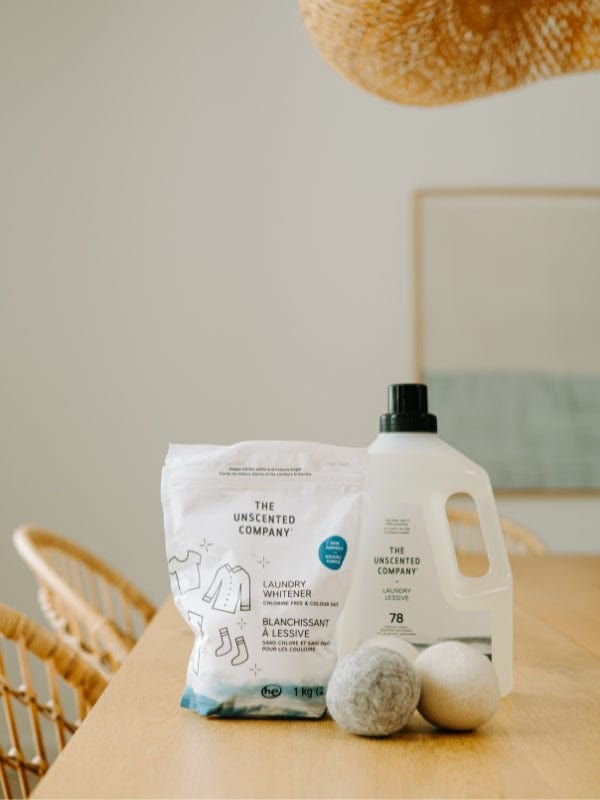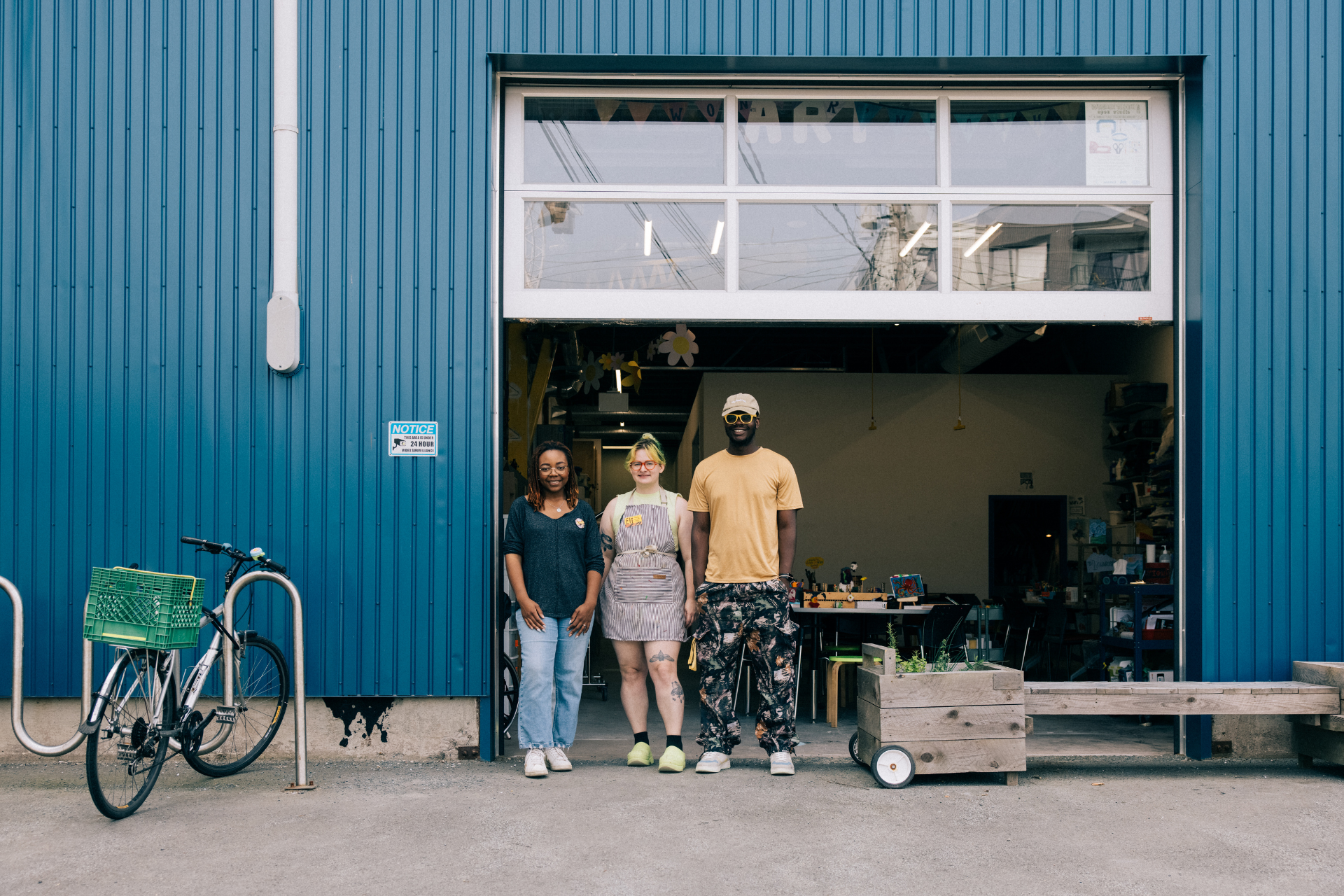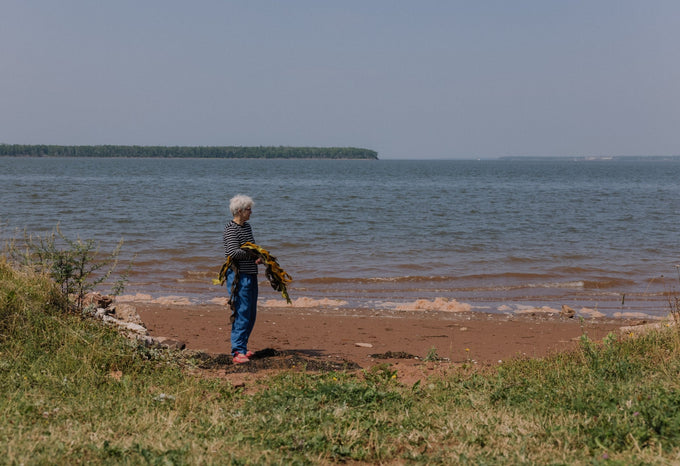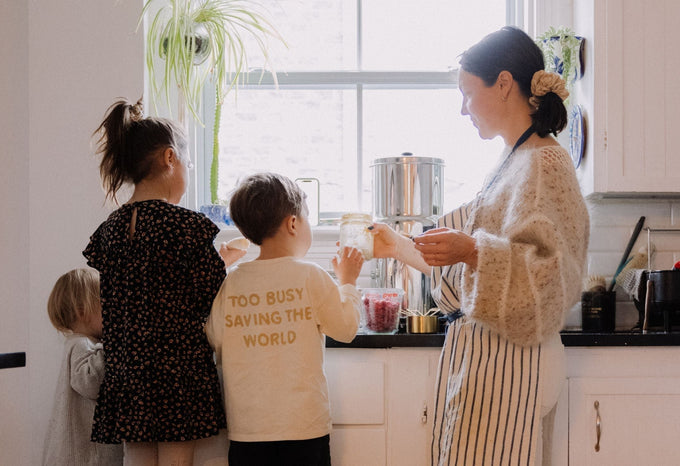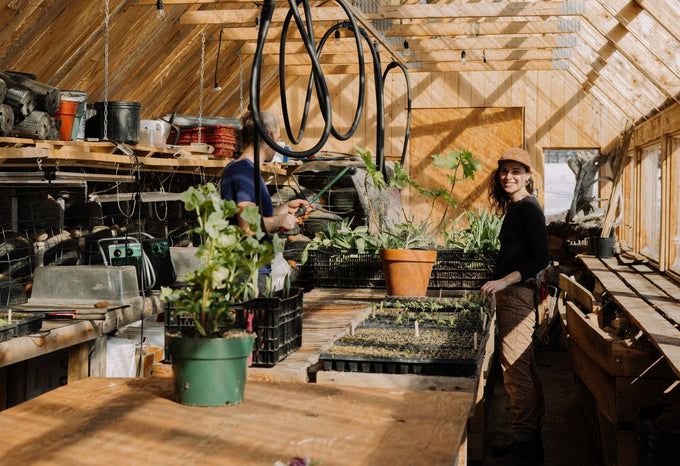Summer may be winding down, but the heat still lingers in the heart of Kjipuktuk (Halifax’s North End, in Nova Scotia). On a quiet side street, I came across the Wonder’neath Art Society — a place where art serves not only as a bridge between people, but also as a catalyst for personal and collective transformation. It’s here that Kawama Hope Kasutu takes on her dual role as facilitator and committed artist.
Step through the doors of the centre, and you’re immediately struck by the warm, bustling atmosphere. Today, like every Saturday, is Open Studio — a session open to all. Kawama and her colleagues, Prince Churchill and Eli Wood, guide children and adults alike, helping them give shape to their ideas and emotions through painting, textiles, crafts, drawing, or sewing.
 At one table, a mother and her children try their hand at needle felting. Nearby, a young girl carefully selects each bead for a bracelet. “Here, everyone is welcome, regardless of age, identity, background, or life story,” Kawama explains. On some days, as many as fifty people take part in the workshops, turning the centre into a true crossroads of intergenerational and multicultural expression.
At one table, a mother and her children try their hand at needle felting. Nearby, a young girl carefully selects each bead for a bracelet. “Here, everyone is welcome, regardless of age, identity, background, or life story,” Kawama explains. On some days, as many as fifty people take part in the workshops, turning the centre into a true crossroads of intergenerational and multicultural expression.
“I love seeing how each person, in their own time, finds their voice through art,” Kawama shares. “There’s a kind of magic when artistic expression allows us to say what we can’t always put into words.” She works to foster a climate of trust — an environment where cultural differences are embraced as strengths, and where lived experience becomes fuel for both creation and change.
Alongside her community work, Kawama creates powerful personal pieces infused with her Zambian heritage and family history. Blending textiles, painting, and screen printing, she uses her art to explore and affirm her cultural identity.
One of her most striking projects reimagines an antique chair — a relic of a painful past, when some furniture was stuffed with the hair of Black people. Kawama transforms it by carefully weaving in braids and wigs, turning a symbol of domination into an artwork of dignity and beauty. “It’s my way of reconciling history with the present, of paying tribute to those who suffered injustice, while also celebrating their resilience.”
 Through her creations, Kawama reflects on her identity as both a member of Nova Scotia’s Black community and as someone deeply connected to her Zambian roots.
Through her creations, Kawama reflects on her identity as both a member of Nova Scotia’s Black community and as someone deeply connected to her Zambian roots.
She was only two years old when she left Zambia with her parents to settle in Nova Scotia. “I grew up here, I’ve spent almost my whole life in this province, but my roots are deeply Zambian,” she says. Now 26, she recalls the fifteen years of uncertainty and stress her family endured throughout the immigration process.
“Even as a child, I could feel that tension. My parents didn’t have much time to explain, so I looked for my own ways to calm my mind. Art became my refuge: a way to understand my emotions and tell my story.”
Over time, that passion grew into a commitment. This year, Kawama is completing a master’s degree in art therapy, while continuing to stay deeply engaged in her community. Her work at Wonder’neath has reinforced her belief that art is a powerful tool for healing. Before stepping into her current role as Lead Facilitator for Open Studio, she first worked with the Art Bikers program, bringing art workshops to different neighborhoods. “I had to get over my fear of biking in the city, but that role allowed me to build meaningful connections with the communities I wanted to serve.”
 For Kawama, art is a force for healing, dialogue, and transmission. “Through my creations, I’ve learned to better understand myself, to understand others, and to build bridges between my two cultures. That’s what I try to offer to the people I meet: a space where they, too, can tell their own stories.”
For Kawama, art is a force for healing, dialogue, and transmission. “Through my creations, I’ve learned to better understand myself, to understand others, and to build bridges between my two cultures. That’s what I try to offer to the people I meet: a space where they, too, can tell their own stories.”
Together with her colleague Prince, she co-founded Coloured Courage, a workshop designed for young people of African descent in Nova Scotia, to help them face racism and discrimination. “This project was born from our own experiences. Through art, we want to create a space of welcome, recognition, and strength.”
***
In the studio, participants’ creations take on shape and colour. Smiles spread across faces, and the quiet concentration in the room speaks to the comfort found in artistic practice. Kawama takes the time to admire each piece, noticing details and asking questions. You can feel the trust settling in, the connections forming. Mission accomplished — for today.
Through her journey and her commitment, Kawama Hope Kasutu reminds us that art is a powerful vehicle for identity, resilience, and healing. By weaving together her African heritage, her life in Nova Scotia, and her community work at the Wonder’neath Art Society, she shows that art can be a bridge between cultures — a key to understanding the past, easing the present, and building a more inclusive future.

